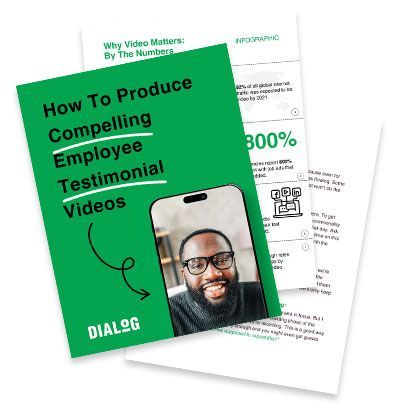5 outdated practices that are hurting your hiring (esp. with Gen Z)

These mistakes are losing you money and putting more pressure on your burned-out HR team.
The single most important asset for every company is its people. Without your people, your customers aren’t served. Your sales won’t happen. Your widgets won’t get made. Yet for the longest time, many employers have treated their employees as commodities: something that will always be available at an affordable price. But those times have changed.
For a couple of decades now, the birth rate has been below 2.1 kids per household here in the US. The US grew at 0.4% population last year only because 75% of that was due to immigration.
A large percentage of baby boomers have been retiring in the last three years and will continue to retire for the next decade. This, combined with other workforce issues (such as women exiting the workforce due to childcare issues) are all leading up to a grim reality: there simply aren’t enough people who are available to work.
This is why it’s time for employers to take a good, hard look at their outdated hiring practices. Here are 5 outdated hiring trends in hiring that can and should be fixed if you want to stop losing money and burning out your team:
Not talking about what you stand for
Everyone business is led by a set of values. Few business leaders will be aware of what they are. But even fewer will communicate them to their candidates. This is dangerous for retention. Why? A study by Qualtrics in 2022 found that 46% of employees whose values didn’t align with their employers said they’re thinking about leaving. But why did those employees sign up for the job in the first place if their values weren’t aligned with their employer? Because the employers weren’t communicating what they care about most. Think about it: if you’re good at communicating your values to candidates, wouldn’t that mean more of the right-fit candidates apply and poor-fit candidates don’t apply? This type of work is the most difficult to implement, but it’s the most impactful long term as it will improve retention and avoid employee churn.
What to do instead
- Hire a consultant who will be objective about what they discover when it comes to what you and your team stands for.
- Hold your teams accountable to these values in your day to day.
- Communicate your values internally and externally via training moments and social media.
- More doesn’t mean better when it comes to listing your values. Keep your values list to 3 so that your leaders and your team will better remember them – and live by them.
Expecting HR to solve all of your hiring problems
HR teams are overworked more than ever. The rate of burnout for these often small teams has grown astronomically since the pandemic. Workivo’s study of HR professionals in 2022 revealed that 98% of them were feeling burned out. Burned out individuals don’t think strategically. They don’t put in the effort to solve big problems. This alone should cause leaders to pause and rethink their hiring practices. Beyond burnout, HR teams are expected to solve what is now a marketing problem, where every employer out there is trying to attract great people from a limited pool of candidates. No HR professionals were trained in this type of talent attraction strategy. This is what marketing professionals are for.
What to do instead
- Hire a recruitment marketing agency to help with your candidate attraction.
- Hiring is now a situation of “all hands on deck, “ aka a team effort. Ask your HR team: how can our whole team support our hiring efforts? Leaders: keep your team accountable to their commitments.
Ignoring online reviews
Many organizations are still unaware or turning a blind eye to their Indeed.com and Glassdoor.com reviews. These are two platforms where your company’s inner workings are on full display at all times to job searchers. All the good, bad, and often the ugly. But ignoring this employee feedback is a huge no-no if you’re trying to improve retention and attract candidates. Just like our buying decisions on Amazon are based on star ratings, candidates are doing the same with your online reviews. And many are choosing not to apply to your jobs because of what they’re seeing. The unfair problem here is that many great employers are suffering from low star ratings on these platforms even though they should be higher. That’s because the incentive to leave a good review isn’t worth the hassle for most employees.
What to do instead
- Capture employee feedback on a regular basis, before people leave your organization and leave a rating online. This will help you determine if you’re running the organization that you want or whether you need to invest in more team development.
- Periodically ask your people to leave a review for you on Indeed or Glassdoor. Afraid what will happen if you do? Then work on improving your culture.
Making it difficult for candidates to learn about your workplace
What if you were looking to buy a car but the only information about it you could find was a one-page document with the specs? No pictures, no videos, no other information. Job seekers are doing something much more important than buying a car: they’re potentially going to invest thousands of hours of their life in this job. Yet most employers still expect candidates to have all the info they need about the job by reading a job posting.
What to do instead
- Indeed and other job boards now offer the ability to embed photos and videos of the job.
- Invest in telling your employee stories on social media so that candidates can learn more about the workplaces they’d be joining.
Not realizing the importance of candidate communications
When a company emails you about the status of your job application, it shows they value you being in the loop. It can make you feel like you're not just a number. Yet this is not being done by most employers, who are missing out on a golden opportunity to make a great first impression. And this is just during the application phase. Adding email and text communications touchpoints from this stage all the way to the onboarding stage doesn't have to be a pain for your teams thanks to software that can be set up ahead of time.
What to do instead
- Invest in an Applicant Tracking System that can automatically send emails and text messages when candidates reach various stages of the hiring process, including rejection emails, phone interview requests, and much more. This will relieve your HR team of much of the time sucks in the hiring process.
- After someone applies, automatically route them to a thank you page with a short video about what to expect next in the process.
- Send a welcome video with some basic onboarding info to new team members who have accepted the job but haven't started. This will relieve the stress of the unknown when they're between jobs.
If you want to avoid getting stuck with hiring the wrong people, put these practices in place sooner rather than later. You’ll be ahead of the
coming “people-pocalypse” and positioned to grow.
Justin Vajko (vay-koh) is a speaker and award-winning marketer who is passionate about connecting great employers to great employees. Justin has seen too many fantastic companies struggle to recruit efficiently. That's why he and his company Dialog help employers generate more job applications from qualified applicants by building their reputation online using video. Justin lives in Chippewa Falls, Wisconsin with his wife and three kids in their first home where he’s on a steep learning curve wrangling non-working appliances and fixing leaky faucets. Have any tips for how to properly mud drywall? Let Justin know on LinkedIn.




